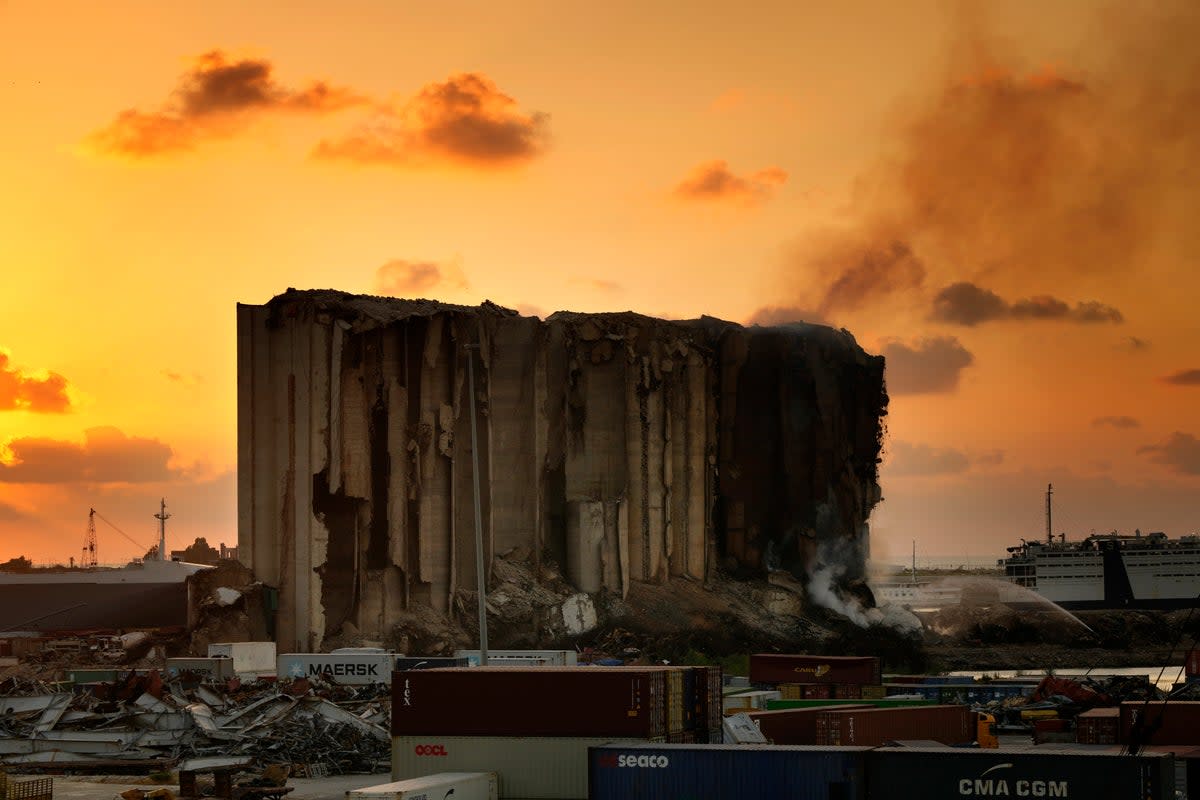Voices: Two years on from the Beirut port blast, Lebanon is still waiting for change

In the aftermath of the tragic Beirut port explosion on 4 August 2020, Lebanese poet Nadia Tuéni’s words were everywhere, on roads and walls around the city: “Beirut has died a thousand times, and been reborn a thousand times” (”Beyrouth est mille fois morte, mille fois revécue”) – a hopeful reminder in a vulnerable situation.
Yet Tuéni’s hyperbole only repeats and amplifies the widespread popular belief, verging on celebration, that Beirut has survived destruction so many times over the course of its long history. In the relative immediacy of the blast two years ago, it sounds hollow and without conviction.
I can’t get the moment that it happened out of my mind: the clocks stopped at 6:08 pm. There was a massive explosion, which killed at least 218 people. The loud blast resounds in my bones and in my ears, even now. When I think about it, I relive all of the shock, the disbelief, the grief.
I remember what I thought in the aftermath: “It's one more disaster. This country is cursed – both cursed and loved.”
It’s easy to think of Lebanon as “cursed”. Recent crises – economic, moral, political and social – are the bane of Lebanese people’s existence. What about our love for the country, too? Is that just a tragic fantasy? Wishful thinking?
In 2020, it was easy to feel Lebanon had hit rock bottom – all we could hope for was that the disaster would generate much-needed lasting change and reform. Yet, two years on, nothing has been done to change the status quo; in fact, the ruling elite have made it worse – much worse. And nobody is listening.
We are in the middle of economic meltdown, with a bankrupt state and the collapse of our currency. We have a ruined health system, an energy crisis, our industry has disappeared, people are struggling for money and our poor are starving. Nearly 80 per cent of Lebanese citizens now live below the poverty line.
Since the Civil War, successive governments in Lebanon have implemented financial engineering policies that have led to a very real dystopia: the fiction of the Lebanese “economic miracle”.
The coffers of the nation – Lebanon was once known as the “Switzerland of the Middle East” – are empty; the dark underbelly of its banking system (offering illusory interest rates) has been exposed. The former vault of Middle Eastern banking is nothing but a piggy bank with a padlock for anyone who failed to stash their cash under their mattress in time.
With depositors and bankers engaged in a surreal, unethical and merciless free-for-all, we are being left to sink into collapse. It feels as though the ruling political clans have rejected and abandoned their people, abused their patience and goodwill, disavowed their trust, and enraged the younger generations – who are now marching through the streets in protest. They have also succeeded in killing hope.
To my mind, Lebanon’s politics is at the core of its malaise. The convoluted electoral laws preserve the politicians’ stranglehold over the people. Those in charge spend hours scrutinising and arguing about pointless tortuous details, while the structure, in effect, determines the outcome – regardless of the people’s preferences.
What’s worse is that we seem to widely accept, without any evidence, excuses about the interplay of “external forces” being to blame for the state the country is in. Lebanon is dominated by political elites with multiform loyalties. It is difficult to faithfully argue that any member of the political elite has the best interests of Lebanon in mind.
Yet at every election, we vote for people of the same loose alliance. Lebanon is a pluralistic society. It’s not easy to design an electoral law that addresses the fraught sectarian issues of this country. It involves a tough balancing act: 18 religious sects are recognised in the constitution. But how can we pretend it’s democratic when it’s not one man, one vote; but one vote for a list that does not remotely represent the voter?
Politically and geologically, Lebanon is a country controlled by structural fault lines. We ignore them at our own risk. We are also on the brink of social catastrophe: Lebanon is no longer a country for young people. The educational system – once the pride of the Middle East, if not the world – has been gutted. It is collapsing right before our eyes.
To keep up to speed with all the latest opinions and comment sign up to our free weekly Voices Dispatches newsletter by clicking here
Lebanon is, in effect, becoming a retirement home without a future. Is it any wonder that young people from all over the country – from all regions and all religions – are revolting against corruption?
In the aftermath of the devastating port explosion, swathes of one of the world’s most beautiful cities now look like scenes from an apocalypse. As Tuéni wrote during the Lebanese civil war: “Those who live in the sunlight of the word, upon the runaway horse of slogans, those, shatter the windows of the universe.”
Her words still apply today, echoed in Beirut's shattered port, hospitals, shops, restaurants, houses, windows – and the lives of its long-suffering population.
Dr Sam Mattar is based in Lebanon and runs an independent consultancy to promote the use of system dynamics in understanding projects

